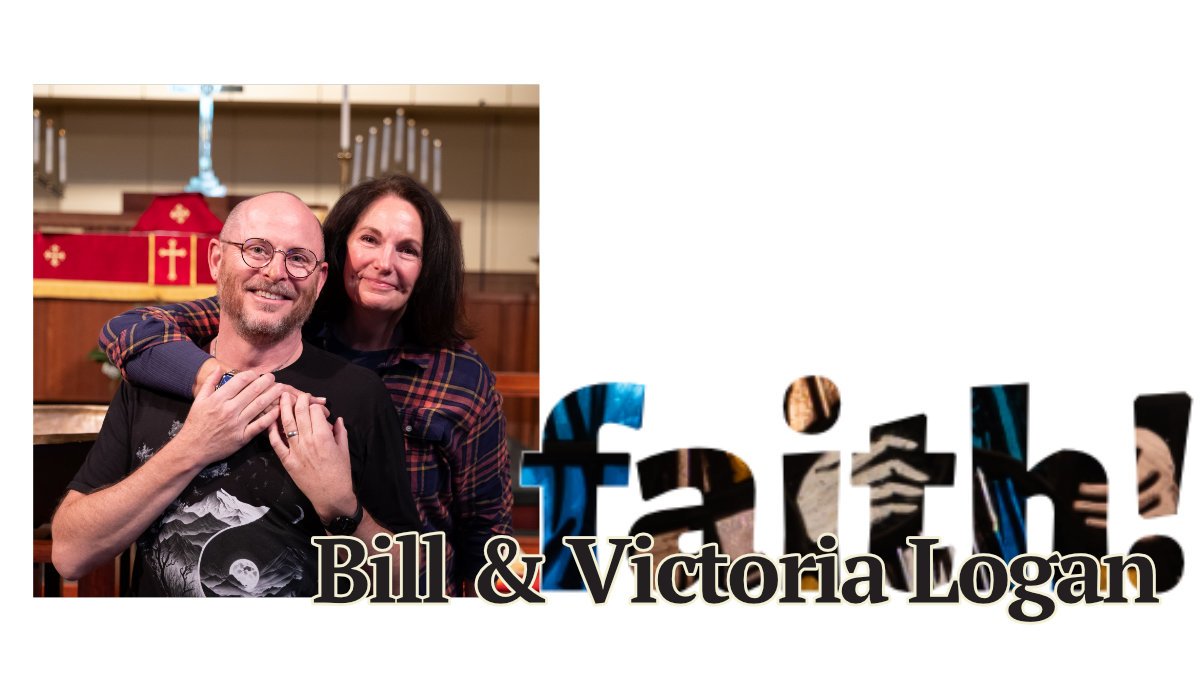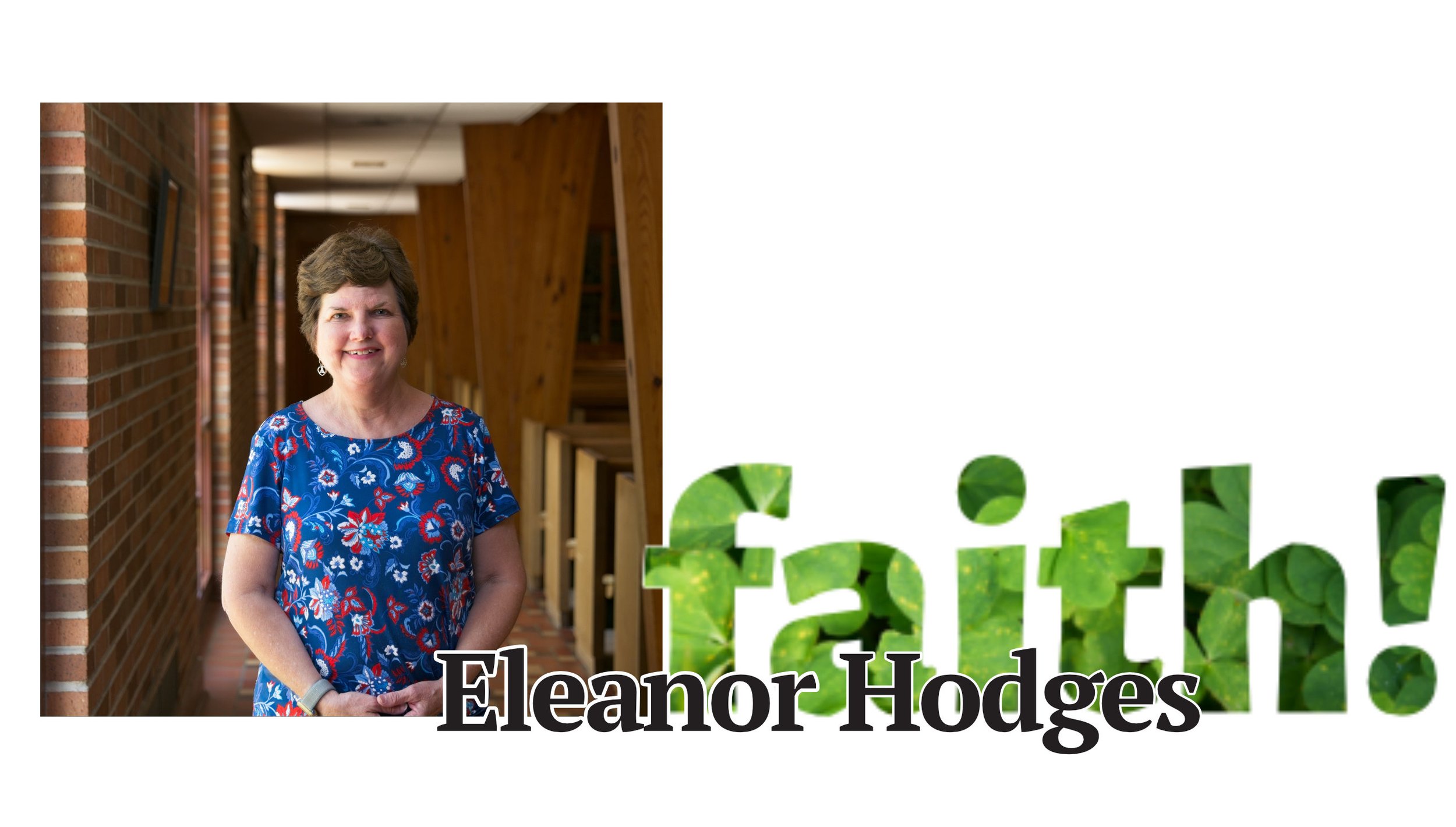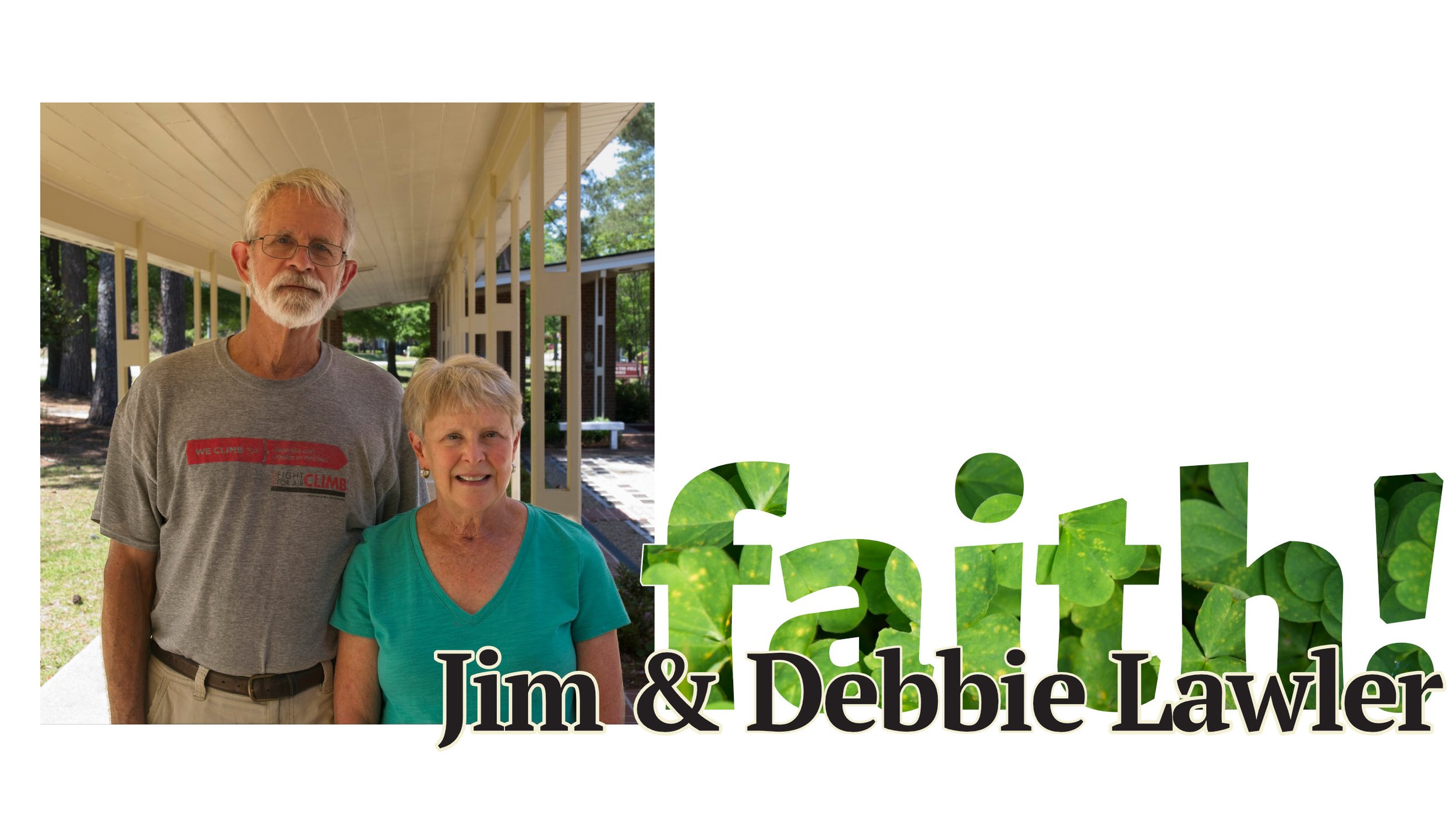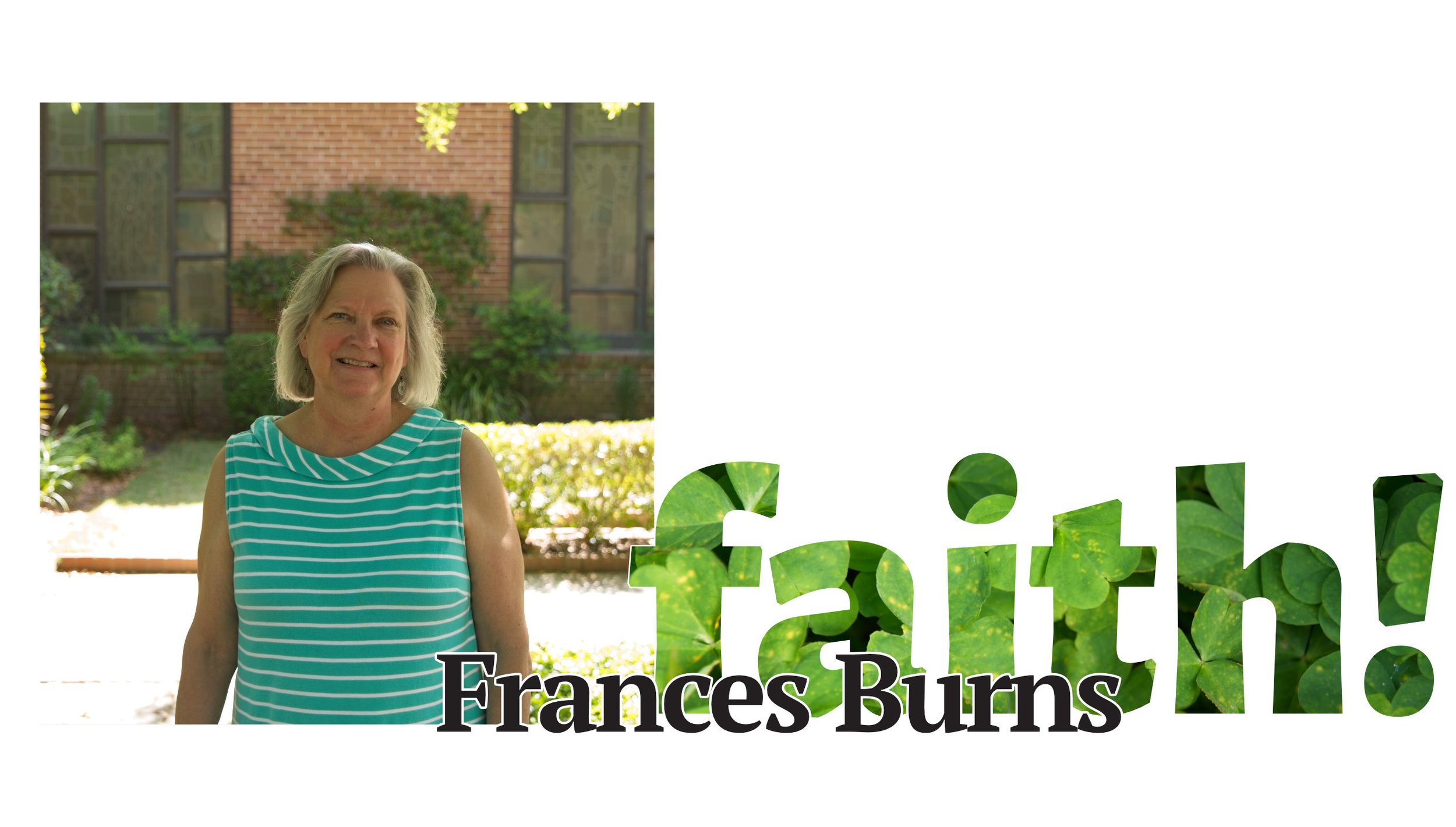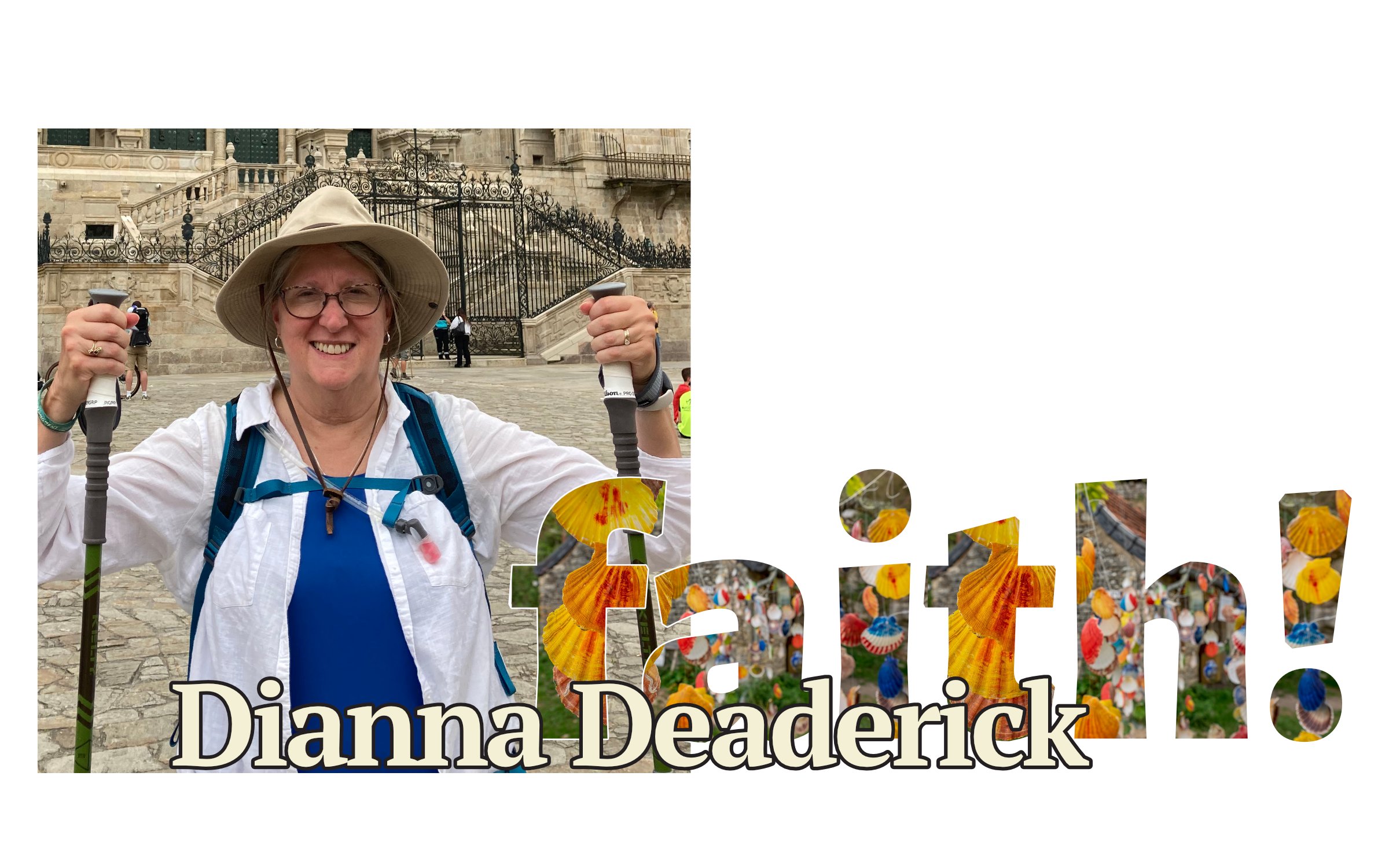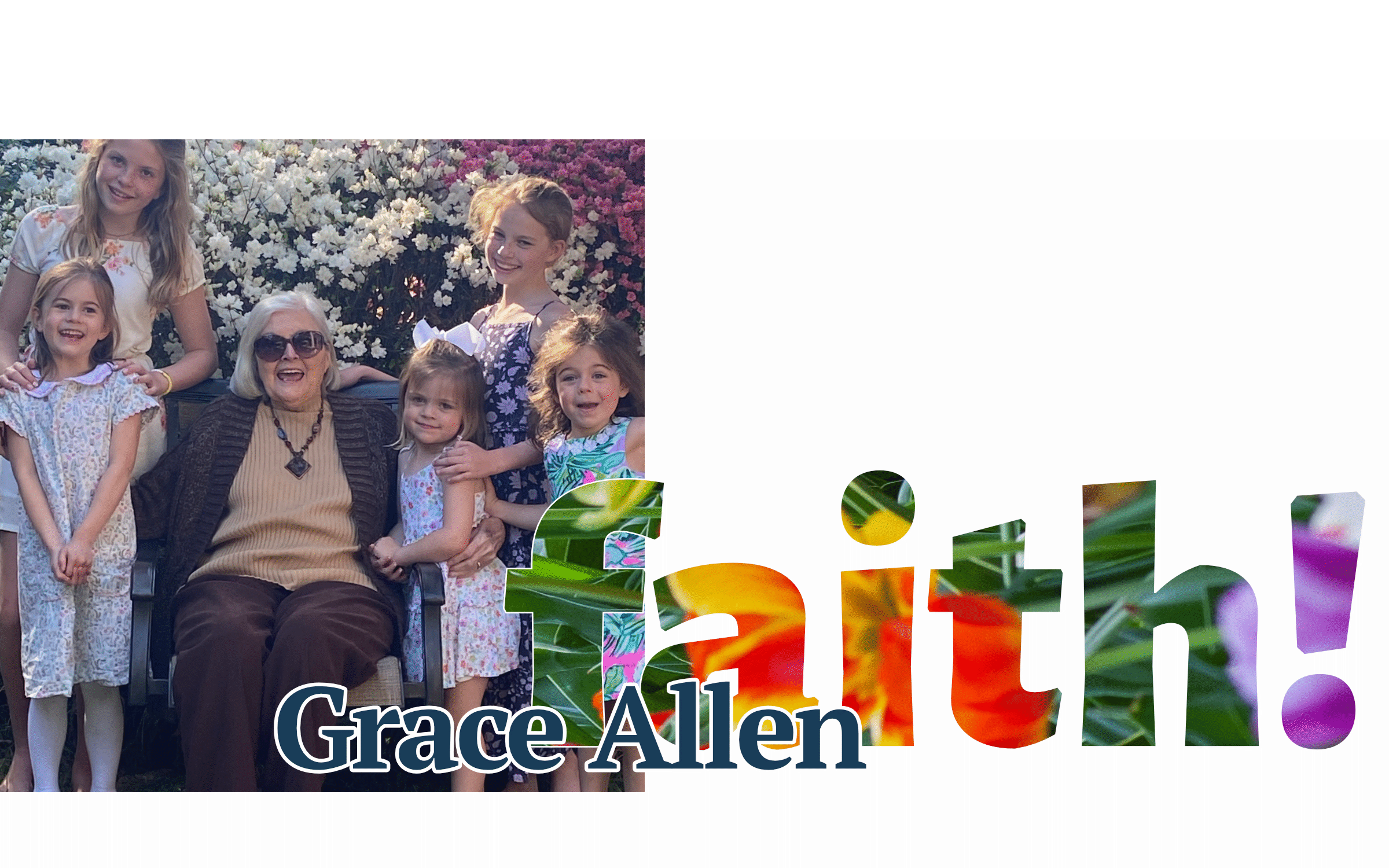
Lifelong musicians find home in embracing a new spiritual tradition.
Chances are if you have attended one of the 5 p.m. services where St. Martin’s “SayLove” band sings, you’ve already met Victoria and Bill Logan.
They are among the band’s five members who sing and play instruments once a month during the evening service. (Other members are Gordon Schell, a St. John’s member who helped get the group together, and Lucy and Christi Mahon, both St. Martin’s members along with Victoria and Bill. Christi often plays the violin.)
Spiritual music has long been a part of the Logans’ lives. New to the Episcopal Church, the couple grew up in the Presbyterian tradition that is part of the evangelical movement. Bill’s mother is a pastor and the couple’s lives were deeply entwined with that work until moving to Columbia in 2019.
For Ronnie, sacred music provides a space that transcends the everyday.
Growing up in Asheville, Ronnie Wise, St. Martin’s new director of music ministries, didn’t come from a particularly churchy family.
In fact, when he was a middle schooler, he started playing the piano for an Episcopal church’s Sunday school program and his parents would drop him off and pick him up afterwards each Sunday.
Sacred choral music is the spiritual language that most speaks to Pam Hair.
For Pam Hair, the words of a hymn are as significant to her faith as the words of Scripture.
“I feel closer to God when I’m singing than when I’m doing anything else,” she said. “When singing really good music, it just takes everything you have and you’re giving God your best.”
Eleanor Hodges is among St. Martin’s quietly faithful, willingly stepping in whenever help is needed.
You could say she has been modeling that type of church participation since her early teen years when she became one of her home church’s first female acolytes at St. Paul’s in Bennettsville.
“I loved it,” she said. “I’d be waiting on Sunday morning for someone not to show up” so she could serve instead.
It would not have been unusual for Eleanor to be at church on any given Sunday. In fact, it would have – and still would be – unusual if she were not.
Attending church, as she explained of her childhood, “was non-negotiable.”
Eleanor and her three siblings simply knew what Sunday mornings involved.
Jim and Debbie Lawler believe in living a faith that takes them out into the world – one of the many reasons St. Martin’s work with the Circle of Welcome program is such a perfect fit for the couple.
The program pairs churches with refugee families striving to create a new life for themselves in the United States. Churches and families work together for six-month assignments overseen by Lutheran Family Services of the Carolinas in conjunction with the U.S. State Department.
You could say that Jim, 70, and Debbie, 68, have been living their faith this way for many years.
When Frances Burns serves meals to those in need through her work with the St. Luke’s Feeding Ministry, she is reminded of the promise we make in our baptismal covenant: “Will you strive for justice and peace among all people, and respect the dignity of every human being?”
A lifelong Episcopalian, Frances, 65, grew up at Trinity Cathedral, where she was baptized, confirmed and married. She has heard these words throughout her life in the countless baptisms she has participated in, but when she stands face-to-face with someone in deep need whose life is so very different from hers, the words become much more than a prayer.
At 14, Alex Hammond is an unusually well traveled teenager, but he has never visited a landscape quite like what he experienced on the Camino de Santiago this summer. Because his mother's family still lives in Italy, he has made multiple trips there to visit cities such as Milan and Rome, but big cities are very different from the rural landscape that much of the camino winds its way through.
If you were to enter Christy and Bill Case’s home, you might notice four beautiful calligraphed certificates framed near their front door.
Christy hung the family’s compostellas or camino certificates there to remind them that they are each pilgrims of Christ, and that though the journey can sometimes be hard, it can also be beautiful and filled with unexpected surprises, including people who encourage you along the way.
When the Rev. Deacon Dianna Deaderick decided to walk a portion of the Camino de Santiago this summer, she had two reasons for her decision.
First, she wanted to use the walk as an opportunity to discern what to focus on during her work at St. Martin's. (She began serving as St. Martin's deacon right before Easter.) And second, she wanted an opportunity to build community with members of the parish.
Grace Allen’s long life has seen a lot of ups and downs – much like the musical tabletop carousel that sits in her living room year-round. The whimsical music box plays both Christmas carols and the carousel song, joyfully, like Grace lives her life.
Grace, who turned 91 on April 28, found the carousel in a New Orleans gift shop in 2007, while on a football trip to watch the Gamecocks play. “I could hear it playing in the entranceway, and I just had to have it.”
Frank Avignone finds it intriguing that as he nears the ninth decade of his life – he turns 89 in May – he is firmly planted at a church by the name of St. Martin’s.
That is because his experience with church life began at another St. Martin’s, though a Roman Catholic one in Amityville, N.Y., back in the late 1930s, early 1940s. “I was born a long time ago,” he says, eyes twinkling.
Over the arc of Marie Askins’ life, she has seen technology move from a radio crystal to an operator-connected telephone system to a dialing phone system to cell phones. And she confesses, the most recent changes have been fast, furious and “frustrating” to keep up with.
“Very,” she noted with a smile.
Sometimes in life we encounter a season when we need the support of a community more than we could have imagined. For Penny Thomas, that moment came in the 17th year of her marriage. It was the mid-2000s, and her husband, Bill Thomas, was diagnosed with ALS. Within three years, the rare neurological disease took his life. He left behind Penny, who was 44 at the time, and their two children, William, who was 9, and Elizabeth, who was 6.
Kate Gellatly’s faith is intricately woven into her day-to-day life.
She isn’t flashy about what she believes, or one to coerce someone into coming to church with her, but she does believe that the way you live can have an impact on others. If they see you living in a way that is inviting, they just might want to find out more about what is informing your way of life.
Virginia Cooper’s journey with the Episcopal Church began as many others’ church journeys have – with a baptism. Hers, as an infant. By the renowned, late Rev. John Spong, no less.
For Gordon Thomas, Sunday mornings evoke fond memories of being hurried out the door with his three siblings to get to Sunday school on time at St. Martin’s. “Sunday school was big with 10 to 15 kids in your class,” Gordon said. “Every Sunday you were going to Sunday school.” And after that, church, and then home for a big family lunch.
When Dan Neal and his wife Terri were first married, they knew Dan’s career in the U.S. Navy would take them many places, so they wanted to be sure they had a faith experience that would ground them. Both had grown up in Columbia, and both were part of regular church-going families – Dan as a member of Main Street United Methodist and Terri as a member of Peterson Presbyterian.
Had you asked Anita Nelam in her 20s if she could imagine herself at almost 70, quarantined for a year during a global pandemic with her five children, she probably would have told you that was as crazy an idea as the storylines in some of the screenplays she has written, or as unlikely as being a statewide staffer for a presidential campaign for the country’s first African-American president.

